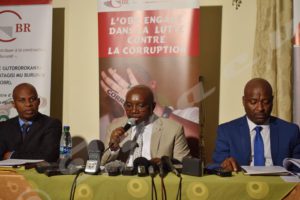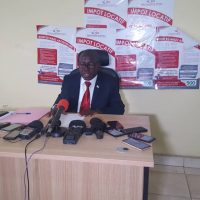Burundi Revenue Authority (OBR) aims to collect an estimated BIF 720, 2 billion in 2017. Some factors have been taken into account to predict its success.

Léonard Sentore: “All taxes will be collected from the internal taxes and customs revenues.”
The rental tax that will be collected by OBR (60% will be paid into communal treasury while 40% will be paid into public one), the anti-pollution tax that will generate the revenue of two million Burundian francs on each vehicle of more than 10 years instead of a million paid in 2016, the auction sale of goods, security and political stability, the increase of economic growth… are some factors which will allow the increase of tax collection in 2017.
Léonard Sentore, OBR General Commissioner, says all taxes will be collected from the internal taxes and customs revenues. Désiré Musharitse, spokesperson for the Ministry of Finance, says OBR will achieve its aim given that the economic growth is projected to 2, 9%. “It will come from the rate of the tax pressures estimated at 4. 8% for the primary sector, 4. 4% for the secondary sector and 4. 4 % for tertiary one”, he says.
Musharitse says the Ministry of Finance hopes that OBR will achieve its aim as the new taxes are estimated at BIF 32 million in the 2017 state budget. “The Burundian Government is financed by both OBR revenues and the external aid”, he says.
Based on the economic growth and the average annual inflation respectively projected to 2.9% and 7.5%, OBR revenues are expected to grow by 10% without considering the new taxes including in the 2017 state budget, says Musharitse.
OBR has collected BIF 637, 45 billion compared with the expected BIF 596, 25 billion. It contributed at 70% to the state budget in 2017 estimated at BIF 1,326 billion.



















 IWACU Open Data
IWACU Open Data

